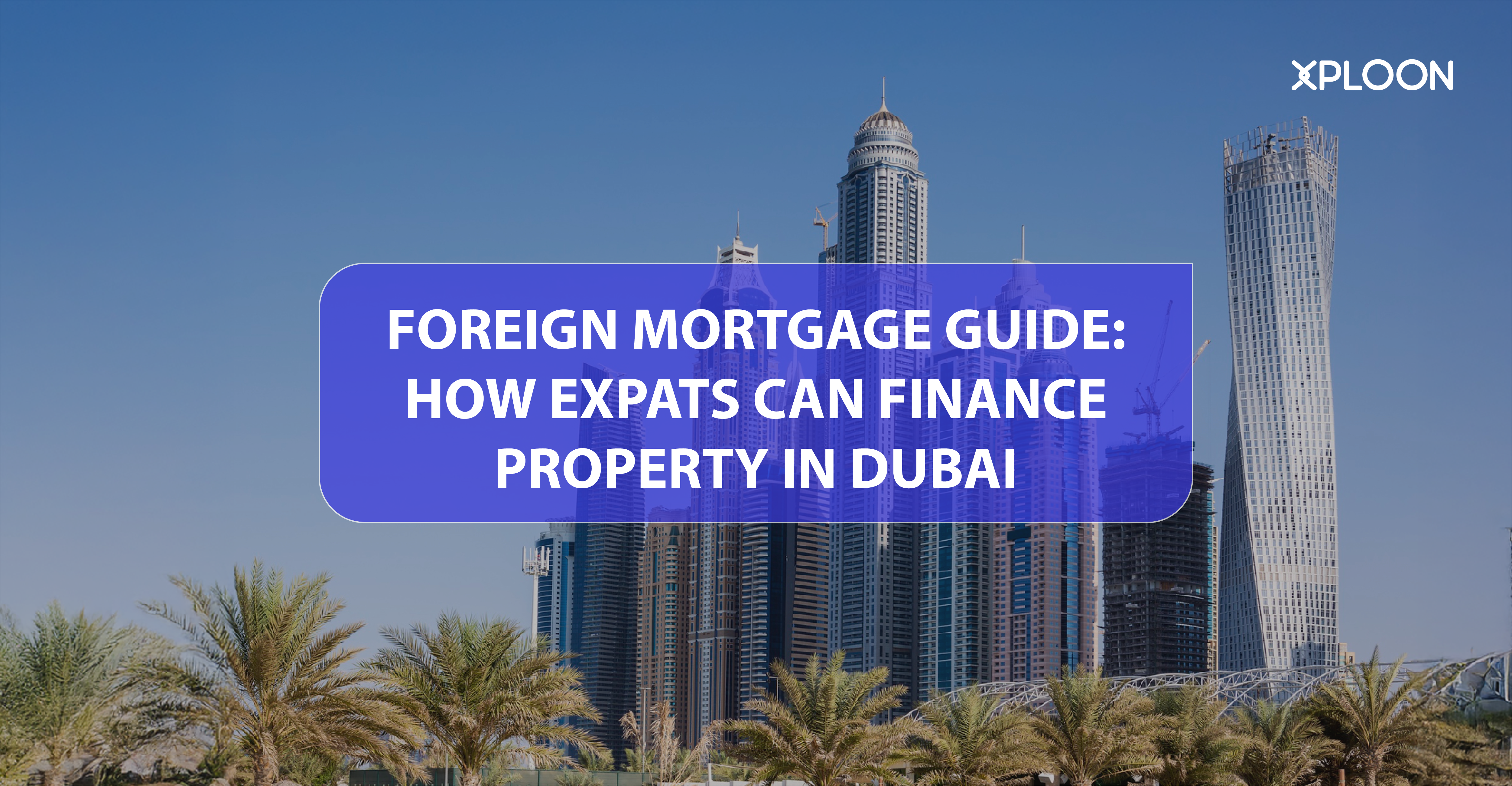
Foreign Mortgage Guide: How Expats Can Finance Property in D
09-Aug, 2025
Haniya Yashf...
Haniya Yashfeen AThe Guide
Dreaming of owning property in Dubai but not sure how to go about financing it as an expat? You’re not alone. With Dubai’s real estate market offering high returns, stable growth, and world-class developments, foreign investors and expats are increasingly looking to own a piece of property. But if you're wondering how to finance property in Dubai as a foreigner, you’ve come to the right place
Whether you're a resident or a non-resident investor, getting a mortgage in Dubai can seem complicated, but it doesn’t have to be. This blog breaks it all down, from eligibility, required documents, interest rates, and bank options to smart tips to get you started.
Can Expats Get a Mortgage in Dubai?
Yes, expats can get a mortgage in Dubai, whether you live in the UAE or are buying from overseas. Banks in the UAE offer mortgage options to:
- UAE residents (with valid visas)
- Non-residents (foreign nationals without UAE residency)
However, the requirements differ based on your residency status. Loan amounts, terms, and conditions can vary depending on your income, country of residence, and the bank you choose.
Mortgage Eligibility for Expats
To qualify and get a home loan in Dubai as a non-resident, you’ll need to meet a few key criteria. While exact requirements differ by bank, here’s what most lenders look for:
If You're a UAE Resident:
- Minimum monthly income: AED 15,000–25,000
- Loan-to-Value (LTV): Up to 80–85% of the property value
- Loan term: Up to 25 years (some banks allow till age 65–70)
If You're a Non-Resident:
- Minimum income: Varies, but proof of stable income abroad is required.
- LTV: Usually capped at 50–60%
- Down payment: You may need to pay 40–50% upfront
- Loan term: Typically shorter than for residents
Tip: Non-residents might have to open a UAE bank account and work with select international banks operating in the UAE.
Documents Required For Mortgage Loan for Expats
To get started, you’ll need to prepare some documents. Here’s a basic checklist:
For Salaried Expats:
- Passport copy (with valid UAE visa, if resident)
- Emirates ID (for residents)
- Salary certificate
- 3–6 months of payslips
- 6 months of bank statements
- Credit report (UAE or international)
- Property documents (title deed or sale agreement)
For Self-Employed Expats:
- Trade license and MOA (if applicable)
- Audited financials for the last 2 years
- Business bank statements
For Non-Residents:
- All of the above (except Emirates ID)
- Proof of overseas address
- Tax return or official income proof from the home country
Tip: It’s always a good idea to get pre-approved before you start your property search. This gives you a clear budget and makes the process smoother.
Features of Home Loans for Non-Residents
There are many factors for getting home loans in the UAE for non-residents, details of which are tabulated below:
|
Feature |
Details |
|
Loan Amount |
Up to AED 15 million (varies by bank) |
|
Loan-to-Value (LTV) |
Up to 80% for properties ≤ AED 5M; 70% or less for higher amounts. Some banks may offer just 50% to non-residents. |
|
Interest Rates |
Typically 4.5% – 6.5%, depending on your profile. Fixed and reducing-rate options are available. |
|
Loan Tenure |
Up to 25 years (may be shorter for non-residents) |
|
Age Limit at Maturity |
Usually 65 years (salaried) or 70 years (self-employed) |
Tip: Compare flat and reducing interest rates. Reduced rates are charged on the remaining loan balance so that you can save more over time.
Banks Which Offer Mortgages for Non-Residents
Many banks in Dubai provide home loans for non-resident buyers, including:
- Abu Dhabi Commercial Bank (ADCB)
- Emirates NBD
- Dubai Islamic Bank
- First Abu Dhabi Bank (FAB)
- HSBC Middle East
- Standard Chartered
- Mashreq Bank
- RAKBANK
- Emirates Islamic
Note: Each bank has different rules and loan options. Be sure to compare interest rates, fees, and loan-to-value (LTV) ratios before choosing.
How to Get a Mortgage in Dubai: Step-by-Step Guide
Here’s a quick step-by-step guide to help you get your mortgage approved and buy an apartment in Dubai.
Step 1: Get pre-approved and plan your budget.
Step 2: Submit Documentation by sharing your ID, income proof, bank statements, and property documents.
Step 3: The bank sends an independent valuer to assess the property.
Step 4: Once approved, the bank issues the mortgage offer.
Step 4: Sign at the bank and register the loan with the Dubai Land Department.
Step 5: The Bank releases funds to the seller, and you get the property keys!
Note: This process usually takes about 2–4 weeks for residents and 4–6 weeks for non-residents.
Conclusion
Buying property in Dubai as a foreigner is more accessible with flexible financing, high rental yields, and zero property tax. Whether you're buying your dream apartment in Dubai or a long-term investment, taking out a mortgage can help you manage your finances better while investing in Dubai real estate.
Want to explore available properties? Browse verified freehold listings and connect with Dubai developers directly on Xploon.
FAQs
1. Can expats buy property in Dubai on a mortgage?
Yes, both residents and non-residents can buy property with a mortgage.
2. What’s the minimum salary required to get mortgage approval?
Typically AED 15,000–25,000 per month, depending on the bank.
3. How much is the down payment for expats?
- UAE residents: 15–20%
- Non-residents: 40–50%
4. Are off-plan properties eligible for a mortgage?
Yes, but only after 50% of the construction is completed (in most cases).
Get on the list
Don't miss out on the latest updates! United Arab Emirates






















